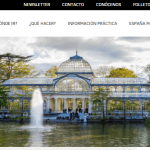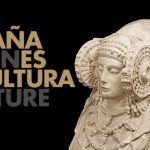Spain is a pioneer in the development of the Tourism Ontology, key to the sector’s digital transformation, since semantics is an enabling technology by promoting the interoperability of systems, facilitating collaboration and data sharing between public and private players.
The Secretary of State for Tourism, Rosana Morillo, launched the presentation event of the “Manual Ontología del Turismo: un lenguaje común para la industria y la interacción turista-máquina” (Tourism Ontology Manual: A common language for the industry and tourist-machine interaction), the result of work developed by SEGITTUR and linked to the Smart Destination Platform (PID).
“We are facing a scenario of a new generation of data for a new generation of destinations. Data sharing will be a new operating scenario for the sector. Therefore, the application of semantics and interoperability in tourism plays a key role in the digital transformation of tourism destinations and companies; where a common language is necessary to facilitate integration and communication between different systems and platforms”, Morillo stressed.
To build the ontology, the tourism domain has been structured into three subdomains: offerings, tourist and destination, with their own vocabulary, taxonomies, classes, and properties related to tourist activity.
Benefits
The ontology brings a variety of benefits including common understanding, interoperability, development of smart applications, knowledge reuse, improvement of data quality, establishment of a common framework for data exchange, and the effective interaction between humans and machines.
Additionally, the operation of the tourism ontology has a direct impact on the user experience: a semantic approach enables more relevant recommendations, since machines go from interpreting to understanding the context in which to give an answer.
Public-private governance model
Here, it is essential to establish a public-private governance model that enables effective collaboration between institutions, the tourism and technology sector, and other entities promoting the data economy. This model will help to guarantee the consolidation of the competitive position of Spanish tourism, as pointed out by the President of SEGITTUR, Enrique Martínez.
At the event, representatives of the sector gave their point of view regarding the meaning of ontology for tourism.
For the Executive Director of the UNWTO, Natalia Bayona, “Innovation is the engine of economic development that allows tourism to evolve. 48% of startups that apply to UNWTO competitions use artificial intelligence. From virtual assistants or “chatbots” for travel booking, predicting the carrying capacity of destinations to the personalisation of online education, they show that this technology is here to stay. Hence the importance of creating a common language in the sector that allows us to unify the criteria to create a code for and analyse tourist behaviour”.
“We celebrate Spain’s commitment to tourism innovation. The tourism ontology will facilitate the interoperability of the data provided by the members of the tourism value chain. This, in addition to improving public and private decision-making, will eliminate inequalities in the use and application of technology, and will impact the quality of the services offered to tourists. It is a tool to boost competitiveness and, therefore, the productivity of the tourism industry”, stressed Inmaculada de Benito, Director of the Tourism, Culture and Sports Department of CEOE.
“A standard that matches a need to transform an industry is key, and in this case, they are two industries – tourism and digital. Semantics will be the trigger for new user experiences, new processes and new business models. The UNE 178503 Semantics for the DTI will have to be updated in view of the advancement and further development of the Domino Ontology of Tourism. At CTN178, we are leading an initiative in ISO TC228 to finalise a semantics standard in international tourism”, explained John Mora, Coordinator of Semantics Subcommittee 2 at CTN178 UNE.
For Juan Jesús García, Head of Industry Affairs at Amadeus, “The Ontological Conceptual Model of Tourism should promote the integration and improvement of the operation of the various technological solutions, facilitate collaboration and data sharing between private and public players, and the application of new technologies in this field, such as data spaces. At Amadeus, we support and promote initiatives that facilitate data sharing models, guaranteeing security, transparency and non-discrimination. This model also represents a valuable tool to strengthen and accelerate the digitalisation and intelligence of tourism destinations in Spain, in which Amadeus is working together with other actors in the tourism sector”.
Alejandro Mullor, Director of Public Sector Strategy at Microsoft Spain, highlighted that “the ontology is a necessary ingredient for the digital transformation of data-driven tourism, and for artificial intelligence to be a generative reality”.





